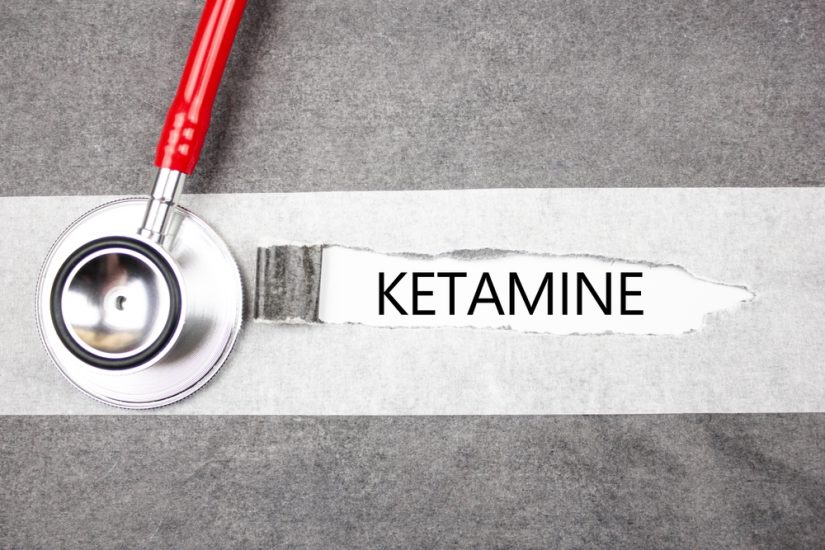- August 26, 2023
- by Shalini Murmu
- Treatment
Mental health issues are like icebergs–much of their complexity and depth remain hidden beneath the surface. Most of the people who are struggling with mental health conditions may appear to be leading normal lives on the outside, masking their inner problems behind a facade of normalcy. This ability to hide their challenges can be both a coping mechanism and a societal pressure, as there is often a stigma associated with mental health issues that makes people hesitant to openly discuss their struggles.
People battling these might go to work, engage in social activities, and even maintain relationships, all while dealing with distressing thoughts, emotions, or behaviors in private. Just as the hidden nature of these issues poses challenges in understanding their severity, the diversity of treatment options and the variability of individual needs can complicate the search for effective care.
Statistics reveal that mental health issues are widespread, affecting a substantial portion of the population. In the United States, for instance, around 20% of adults, or 1 in 5 individuals, grapple with a mental health disorder each year. Among the most prevalent mental health conditions, anxiety disorders take the lead, impacting approximately 31% of adults at some point in their lives. Major depressive disorder follows closely, affecting about 17% of adults, while conditions like bipolar disorder, post-traumatic stress disorder (PTSD), and attention-deficit/hyperactivity disorder (ADHD) affect 2.8%, 3.6%, and 8.4% of adults respectively. These statistics underline the significant occurrence of mental health challenges and emphasize the need for support and treatment.
Mental Health Post-Pandemic
The COVID-19 pandemic didn’t just shake up the world with masks and hand sanitizers; it gave mental health a rollercoaster ride like no other. The virus induced such uncertainty among all that they were a surge in anxiety, addiction, ‘covid depression’, and stress worldwide. It also turned up the heat for those already dealing with existing mental health conditions during which access to mental health care became equally tricky.
Overlooked Mental Health Treatment
When mental health treatment is ignored for too long, it can lead to significant damage over time. Mental health issues, if left untreated, have the potential to worsen and have far-reaching consequences on various aspects of a person’s life. Here’s a glimpse of what can happen when mental health treatment is neglected:
- Increased Severity: Just like a small fire can turn into a raging inferno, untreated mental health issues can intensify. What might have started as occasional distress or low mood can escalate into more severe symptoms, making them difficult to manage.
- Impaired Functioning: Mental health issues can start to interfere with daily life. Work performance, relationships, academic achievement, and even basic self-care routines might be compromised, leading to a downward spiral in overall well-being.
- Physical Health Impact: There is a strong connection between mental and physical health. Overlooking mental health conditions for extended periods can contribute to physical health issues like insomnia, digestive problems, weakened immune systems, and even an increased risk of chronic illnesses.
- Relationship Strain: With constant mood swings, irritability, withdrawal, and unpredictable behavior can distance loved ones and lead to misunderstandings.
- Isolation: As symptoms worsen, one might withdraw from social activities, isolating themselves. This isolation may make you feel even more lonely, which feeds a vicious cycle of declining mental health.
- Development of Coping Mechanisms: In the absence of proper treatment, people might develop unhealthy coping mechanisms such as substance abuse, self-harm, or risky behaviors to manage their emotional pain as a means of relief.
- Impact on Career and Education: Concentration, focus, and productivity can decline significantly due to behavioral health This can result in poor job performance, missed opportunities, and academic struggles.
- Financial repercussions: The combination of impaired functioning and potential job loss can lead to financial difficulties, making it harder to access mental health facilities when it’s eventually sought.
- Increased Risk of Crisis: Over time, untreated mental health issues can increase the risk of a mental health crisis, such as intense panic attacks, suicidal thoughts, or breakdowns, requiring immediate intervention.
- Longer Recovery Time: The longer mental health concerns go unaddressed, the more complex they might become. This could result in a longer and more challenging recovery journey once treatment is finally begun.
Mental Health Diagnosis
In the process of diagnosing mental health conditions, a thorough and systematic approach is employed. Mental health professionals, such as psychiatrists, psychologists, clinical social workers, and mental health counselors, undertake a clinical assessment. This assessment involves the compilation of comprehensive information regarding the individual’s present and past mental health status, medical history, familial background, and any potential stressors.
Furthermore, one-on-one interviews are explored, during which a thorough mental health assessment of the individual’s experiences, emotions, behaviors, and cognitive patterns are taken note of. These interviews serve as an avenue for gaining valuable insights into the nature, intensity, and repercussions of the individual’s symptoms within the context of their daily life.
The diagnostic process relies upon established criteria set forth in recognized manuals like the DSM-5 or ICD-10, which provide standardized benchmarks for identifying and categorizing diverse mental health conditions.
The procedure of differential diagnosis emphasizes the careful consideration of multiple potential diagnoses prior to arriving at a conclusive decision. This meticulous process includes the systematic elimination of mental illnesses that might exhibit similar symptoms, culminating in a precise diagnosis.
Cultural nuances are vigilantly incorporated into the diagnostic framework. The distinct ways in which symptoms are experienced and conveyed across diverse cultural contexts are thoughtfully acknowledged, recognizing the significance of cultural norms and beliefs. Individual’s personal insights and reflections carry substantial weight, influencing the diagnostic journey. Self-reporting of symptoms and the person’s perception of their own mental health construct constitute essential elements of this comprehensive process.
In light of the challenges of finding the right facility, it’s crucial for individuals seeking treatment, along with their loved ones, to be persistent, patient, and well-informed. North America Behavioral Health Services will help you in researching reputable mental health centers, seeking professional recommendations, and openly discussing options can help in finding a center that offers the right combination of therapies and support.
North America Behavioral Health Services – Partner In Recovery
In those moments when you find yourself navigating through the challenges of life, a time when it might feel like the threads of your world are unraveling and solutions seem to slip through your hands, that’s exactly when North America Behavioral Health Services steps in as your beacon of hope. Our mental health resources and 24/7 available treatment consultants will guide you to complete recovery from mental health centers located near you.
















